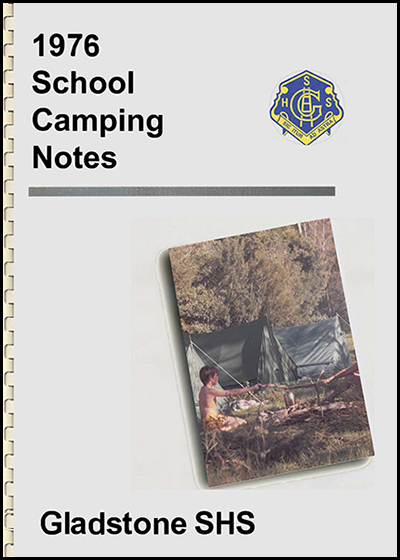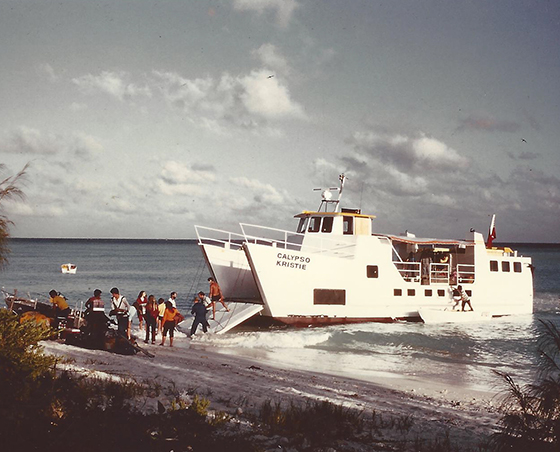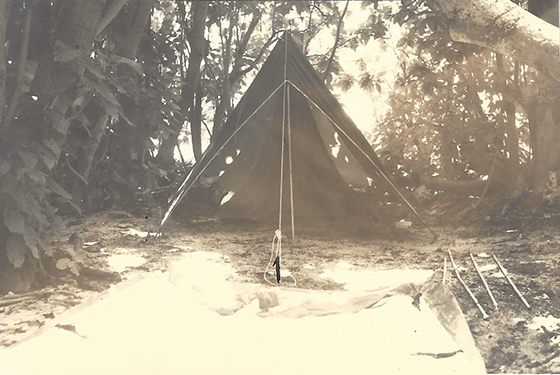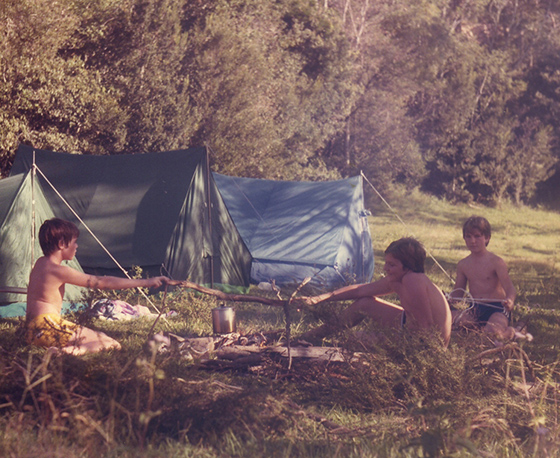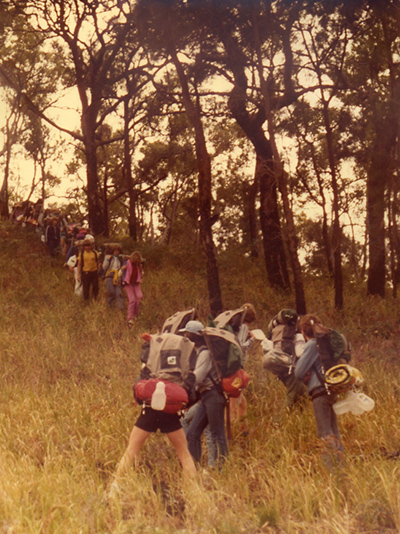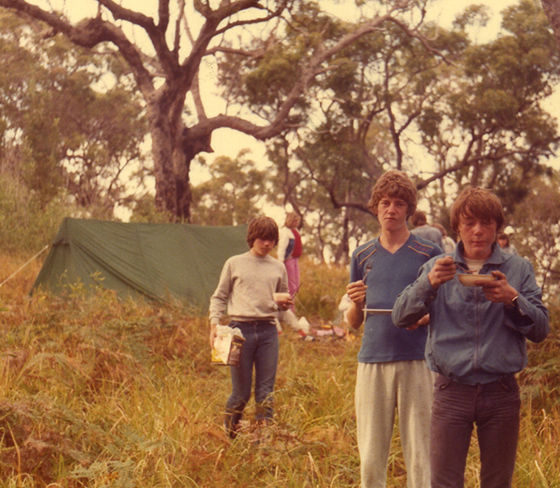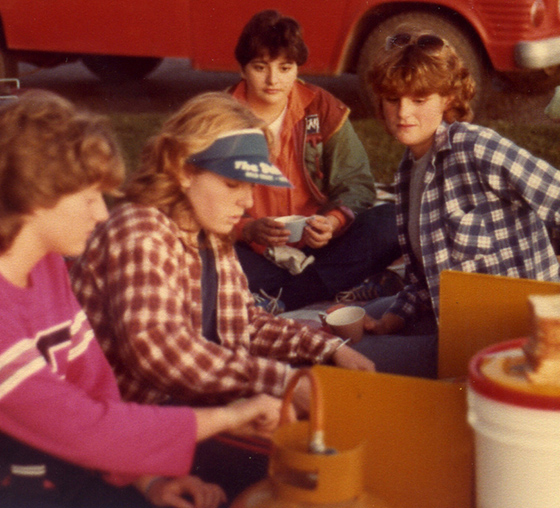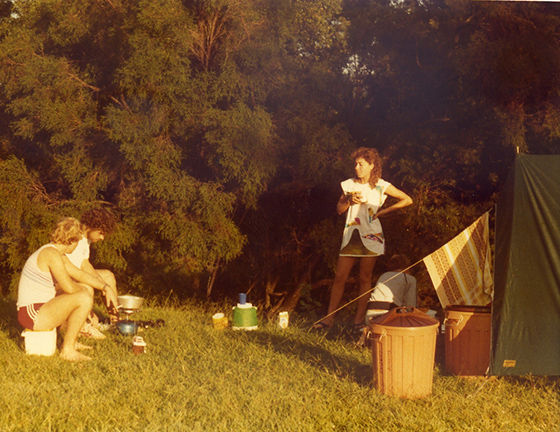1976 Gladstone SHS Camping Notes

ISBN : None allocated
Published Date : 01 September 1976
Product Code : 1976 GSHS
Format : Free PDF for download
By Bob Moffatt
Wet Paper publications non-commercial school licence
The publisher and author/s of this pdf file grant to the school a revocable, non-exclusive, non-transferable right and licence to use the content, exercises, lab and field work lesson notes within the school for educational purposes only.
Yearly record keeping
To ensure fair payment is made to collecting societies, educational institutions are to record the digital ISBN above.
- To do this go to the school office and ask the IT department or whoever looks after digital book licences to record the ISBN in the school digital library licence catalogue.
Copyright
Except as permitted by the Copyright Act 1968 (Cth), you may not reproduce any of the contents of this publication, without the written permission of the copyright owner.
The title to, and intellectual property rests with the publisher's author/s, illustrators, photographers and design consultants and nothing in the agreement should be construed as transferring those rights to the school.
Educational exemption
There are exemptions under the Act that allow educational and government use of text, images and music scores for educational purposes.
These exemptions are in Part VB of the Copyright Act 1968 (Cth), where you are entitled to reproduce or communicate 10% of the words or one chapter from this file for educational use within your school. If you wish to reproduce or communicate MORE than 10% contact the copyright owner.
For more information, see www.copyright.com.au and www.copyright.org.au.
Teachers Information
Background
Funded by the Gladstone SHS P&C, this project purchased enough camping equipment to take 400 students on a grade 8 camp.
A joint effort between the Science and Geography Departments, the program drew on the philosophies of the Maroon Outdoor Education Centre. In the forward Bob writes ...
Probably one of the best things done at Gladstone SHS in the later 1970's and early 80's was to introduce Outdoor Education.
The school was greatly influenced by Denis Bridger from Maroon Outdoor Ed and the camping philosophies of School Principal Barry McGuire.
Gladstone was an industrial town in the 1970-80's. Parents worked long hours and there were weeks on end where they were on strike over many issues, so the kids were poor.
The school used to run school bush camps for 400 year 8 kids for less than $12 per student.
The program
It was a simple program. Kids brought their camp clothes in their school bag with an old broom stick. We used to take the bus to the side of the road about an hour from school and then trek to our camp site in the bush to get there by 3 - 3.30 in the afternoon.
If it was a long walk, they would work in pairs and sling their school bags in between until they reached their campsite.
Then in small groups, students would set up their leant-to, collect wood and cook a simple meal - sausages, potatoes and tinned veggies. Dessert was often creamed rice and then biscuits, tea or cordial. When we had no funding, we used builders black plastic for tents and the kids slept on the ground.
Night activities were spotlighting, charades or astronomy.
Bacon and eggs for breakfast, spam ham sandwiches for lunch and then precooked corned beef for dinner, again with potatoes and tinned veggies, but this time damper with honey and jam.
Day activities often involved hiking, animal and plant ID, knots, team building trust exercises where we tried to teach the kids that you can only go as fast as the slowest or less able.
Then on day 3 (Wed) the groups came home, to swap with the next group till Friday.
Reef trips
The program was extended to reef trips to North West Island involving the newly formed Great Barrier Reef Marine Park Authority where Marine Biologist Len Zell played a great role in educating the school in marine management and conservation strategies.
The trips were greatly assisted by the resources from GOSP - The Gladstone Oceanographic Studies Program's 16ft boat Corixa.
The program is alive and well today.
Acknowledgements
Thanks to Greg Martin, who gave me, the idea, Dennis Bridger, who changed my attitude about lightweight camping, David Kopelke from Boyne Island Field Study Centre and all the staff and students at Gladstone State High School who pioneered the ideas contained herein.
Contents
1. Preface
2. Why Go Camping
3. Aims
4. Teaching Strategies
5. A Camp Programme
6. Evaluation and Resources
7. Organisation
- Meetings
- Resources
- Co-ordinator (previous year camp)
8. Duties of
- Teacher aide
- Form teacher
- Participating teachers
- Others
Appendices
- Student Information sheets #1 - #4
- Staff memos #1 - #7
- A $7.00 menu
- Shopping list
- Basic equipment required
- Safety and first Aid


